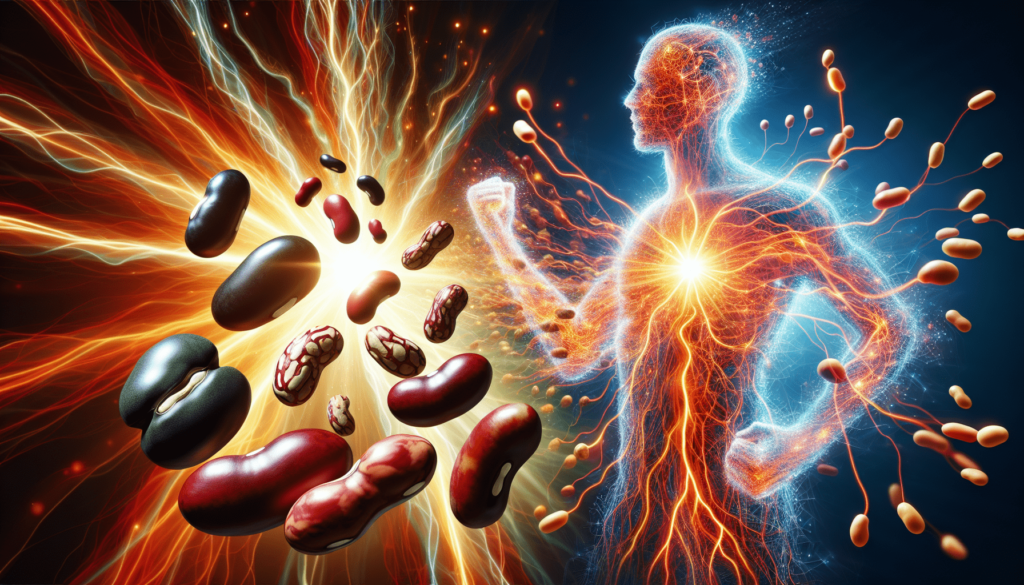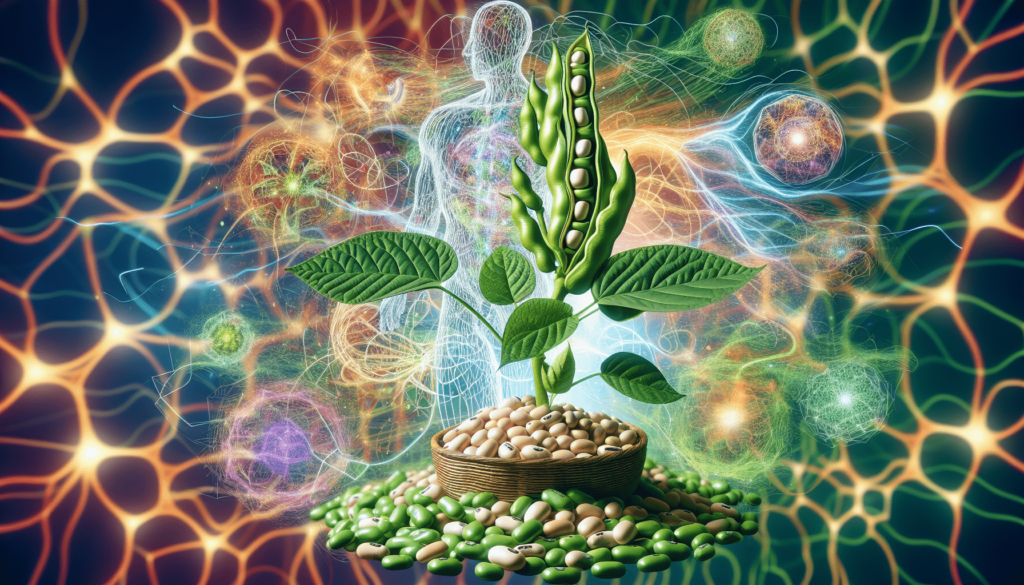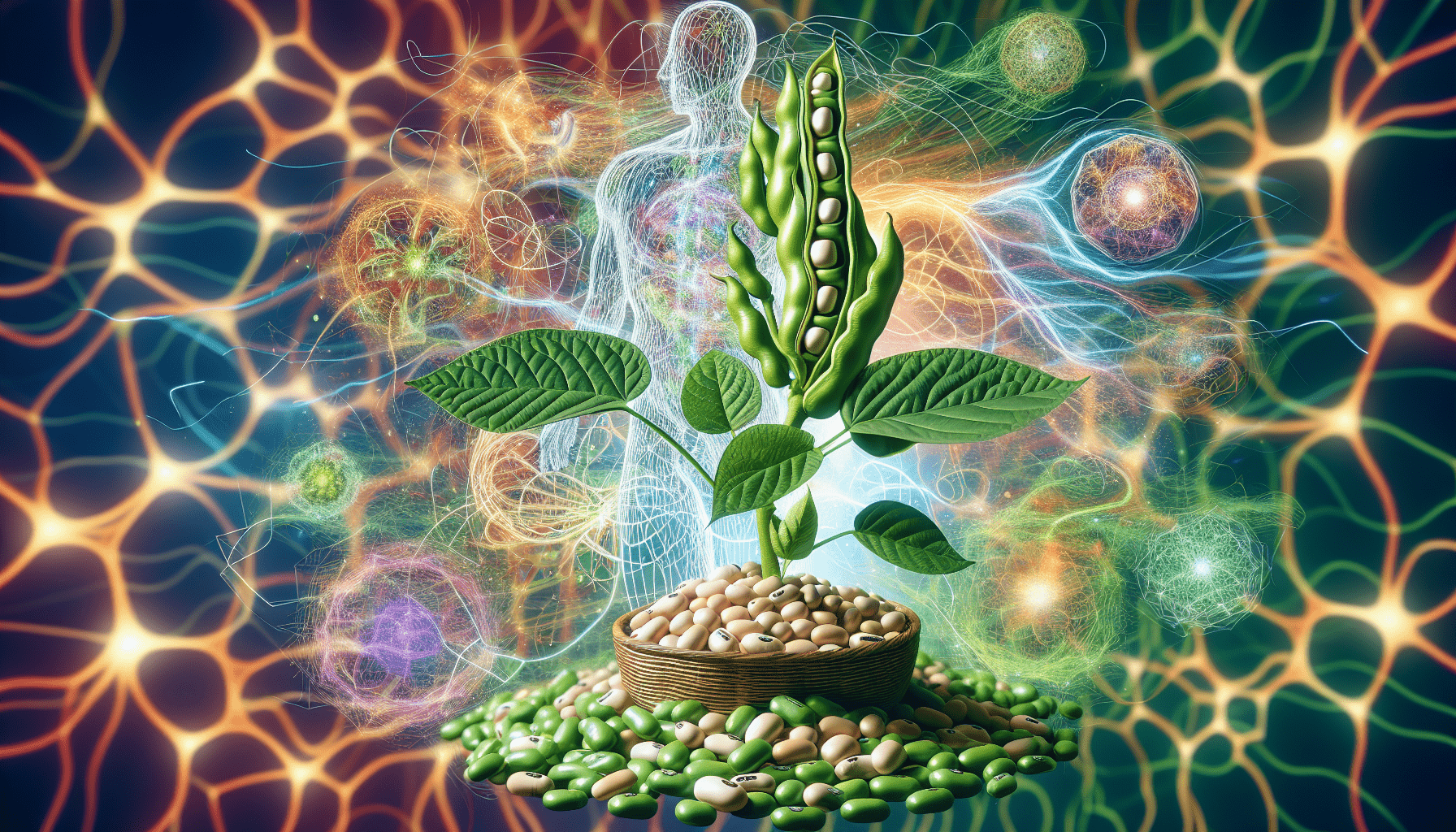Beans are not only a delicious addition to meals, but they also play a vital role in supporting energy production and metabolism in our bodies. Packed with essential nutrients like carbohydrates, proteins, and fiber, beans provide a sustainable source of energy that keeps us fueled throughout the day. Additionally, their high mineral content, including iron and magnesium, aids in the conversion of food into energy while promoting efficient metabolism. Whether you prefer black beans, chickpeas, or kidney beans, incorporating these humble legumes into your diet can have significant benefits for your overall energy levels and metabolic health. So, it’s time to give beans the recognition they deserve and harness their power to fuel your busy life.
Introduction to beans
Beans are a versatile and widely available food that has been consumed for centuries in various cultures around the world. Whether you enjoy black beans, kidney beans, chickpeas, or lentils, these legumes offer numerous health benefits and are a valuable addition to any diet. In this article, we will explore the different types of beans, delve into their nutritional value, and understand why they are an essential component of a balanced diet.
Types of beans
There is a vast array of beans to choose from, each with its own unique flavor and texture. Some popular varieties include black beans, pinto beans, kidney beans, navy beans, and chickpeas. These legumes not only provide excellent taste but also offer a plethora of nutrients. From Mexican cuisine utilizing black beans to Middle Eastern dishes featuring chickpeas, beans have found their way into diverse culinary traditions and are beloved by many.
Nutritional value of beans
Beans are often referred to as a nutritional powerhouse due to their exceptional nutrient content. They are an excellent source of plant-based protein, complex carbohydrates, dietary fiber, vitamins, and minerals. Additionally, beans contain very little fat, making them a healthy choice for those watching their weight or striving for a balanced diet. Incorporating beans into your meals allows you to harness the benefits of these nutritional powerhouses and enhance your overall well-being.

Importance of beans in diet
Not only are beans delicious and packed with nutrients, but they also play a vital role in supporting energy production and metabolism in the body. The carbohydrates, fiber, and proteins found in beans contribute to sustained energy levels and help regulate your metabolism. By adding beans to your diet, you can enjoy a steady stream of energy throughout the day and promote optimal functioning of your body’s systems.
Energy production and metabolism
Role of beans in energy production
Beans are an excellent source of complex carbohydrates, which are essential for energy production. Complex carbohydrates break down slowly in the body, providing a steady release of glucose into the bloodstream. This steady supply of glucose fuels the body’s energy needs and prevents energy crashes that can occur when consuming simple carbohydrates. By incorporating beans into your meals, you can maintain a consistent energy level throughout the day.
Bean’s effect on metabolism
Metabolism is the process by which the body converts food into energy. The protein content found in beans plays a crucial role in this process. Protein helps build and repair tissues, including muscles, enzymes, and hormones, all of which are vital for a well-functioning metabolism. By consuming beans regularly, you can support your metabolism and ensure efficient energy utilization in your body.
Beans as a source of complex carbohydrates
Beans are rich in complex carbohydrates, which consist of long chains of sugar molecules. Unlike simple carbohydrates found in refined sugars, complex carbohydrates take longer for the body to break down, providing a slow and steady supply of energy. This prolonged source of energy not only fuels your daily activities but also helps you maintain stable blood sugar levels and avoid energy crashes.
Vitamins and minerals in beans
B vitamins in beans
Beans are a fantastic source of B vitamins, which are essential for energy production and metabolism. B vitamins, including thiamin, riboflavin, niacin, and folate, help convert the food you eat into energy that your body can utilize. By incorporating beans into your diet, you can ensure an adequate intake of these vitamins, which play a crucial role in supporting your energy levels.
Iron and magnesium in beans
Iron and magnesium are essential minerals found in beans that contribute to energy production and metabolism. Iron is necessary for the formation of red blood cells, which transport oxygen throughout the body. Magnesium, on the other hand, plays a crucial role in converting food into energy and maintaining optimal muscle function. By adding beans to your meals, you can ensure a sufficient intake of both iron and magnesium, promoting efficient energy production.
Zinc and copper in beans
Beans also contain valuable minerals such as zinc and copper, which are necessary for maintaining healthy energy levels. Zinc is involved in numerous metabolic processes, including protein synthesis and energy metabolism. Copper, on the other hand, aids in the production of energy within cells. By incorporating beans into your diet, you can benefit from these minerals and support your body’s energy production and metabolism.

Fiber content in beans
Soluble and insoluble fiber in beans
Beans are packed with dietary fiber, both soluble and insoluble. Soluble fiber dissolves in water and forms a gel-like substance in the digestive system. This type of fiber helps regulate blood sugar levels and cholesterol levels. Insoluble fiber, on the other hand, adds bulk to the stool and promotes regular bowel movements. By consuming beans regularly, you can enjoy the benefits of both types of fiber, promoting a healthy digestive system.
Impact of fiber on energy production
Fiber plays a crucial role in the body’s energy production. The slow digestion and absorption of fiber-rich foods, such as beans, result in a sustained release of energy. This steady energy supply prevents energy crashes and provides you with long-lasting vitality throughout the day. Additionally, fiber promotes a feeling of fullness and satiety, which can help regulate appetite and prevent overeating.
Fiber’s role in metabolism
Fiber is also essential for a healthy metabolism. It helps regulate blood sugar levels by slowing down the absorption of glucose into the bloodstream. This prevents spikes and crashes in blood sugar, ensuring a stable source of energy for the body. Furthermore, fiber promotes the growth of beneficial gut bacteria, which play a vital role in maintaining a healthy metabolism and immune system.
Protein content in beans
Importance of protein in energy production
Protein is a macronutrient that plays a critical role in energy production. It is involved in building and repairing tissues, as well as the production of enzymes and hormones necessary for metabolism. Beans are an excellent source of plant-based protein, making them an ideal choice for individuals following a vegetarian or vegan diet. By incorporating beans into your meals, you can ensure an adequate intake of protein and support your energy production.
Role of amino acids in metabolism
Amino acids are the building blocks of protein and play an essential role in metabolism. They are involved in various metabolic pathways, including energy production, neurotransmitter synthesis, and tissue repair. Beans contain a wide range of amino acids, making them a valuable source of these essential compounds. By including beans in your diet, you provide your body with the necessary amino acids to support a healthy metabolism.
Comparative protein content of different beans
While all beans contain protein, the exact amount can vary between different varieties. For example, soybeans and lentils are known to be particularly high in protein, making them popular choices among individuals seeking plant-based protein sources. However, even beans with a slightly lower protein content, such as black beans or kidney beans, still provide a valuable amount of this macronutrient. By diversifying your bean consumption, you can ensure a wholesome intake of protein.
Bean’s impact on blood sugar levels
Low glycemic index of beans
Beans have a low glycemic index, meaning they do not cause a rapid spike in blood sugar levels after consumption. The slow breakdown of complex carbohydrates and the presence of dietary fiber in beans contribute to this favorable effect. By incorporating beans into your meals, you can enjoy the sustained release of glucose into the bloodstream, preventing sudden spikes and crashes in blood sugar levels.
Stabilizing blood sugar levels
The low glycemic index of beans plays a crucial role in maintaining stable blood sugar levels. Spikes and crashes in blood sugar can lead to feelings of fatigue, irritability, and an overall lack of energy. By consuming beans, you provide your body with a steady supply of glucose, promoting consistent energy levels throughout the day and reducing the risk of energy crashes.
Preventing energy crashes
Energy crashes, characterized by a sudden drop in energy levels, can be avoided by incorporating beans into your meals. The slow digestion and absorption of complex carbohydrates, combined with the presence of fiber and protein, provide a sustained source of energy that prevents rapid energy depletion. By enjoying bean-based dishes, you can mitigate the risk of energy crashes and maintain a steady level of vitality.
Bean-based dishes for sustained energy
Bean salads and wraps
Bean salads and wraps are excellent options for individuals seeking sustained energy throughout the day. By combining beans with a variety of vegetables, herbs, and dressings, you create a nutritious and flavorful meal. Whether you prefer a Mexican-inspired black bean salad or a Mediterranean-style chickpea wrap, these dishes will provide you with essential nutrients, dietary fiber, and protein to keep your energy levels stable.
Bean soups and stews
Bean soups and stews are hearty and nourishing meals that are perfect for colder seasons. By simmering beans with vegetables, herbs, and spices, you create a flavorful and comforting dish. The combination of complex carbohydrates, protein, and fiber in bean soups and stews provides a sustained source of energy, keeping you warm and energized throughout the day.
Bean-based snacks and spreads
Beans can also be incorporated into snacks and spreads, offering a convenient and tasty way to boost your energy levels. Bean dips, such as hummus or black bean dip, provide a nutrient-dense snack option that can be enjoyed with whole grain crackers or raw vegetables. By opting for bean-based snacks and spreads, you can satisfy your cravings while supporting sustained energy production.
Beans as a source of antioxidants
Role of antioxidants in energy production
Antioxidants play a crucial role in energy production by protecting cells from oxidative stress. Oxidative stress occurs when there is an imbalance between free radicals and antioxidants in the body, leading to damage at the cellular level. By consuming beans, you provide your body with a rich source of antioxidants, which help neutralize free radicals and promote efficient energy production.
Protecting cells from oxidative stress
Beans contain a variety of antioxidants, including flavonoids, polyphenols, and vitamins such as vitamin C and vitamin E. These antioxidants work together to protect cells from oxidative stress and the damage caused by free radicals. By incorporating beans into your diet, you can bolster your body’s defense against oxidative stress and promote healthy cell function.
Promoting healthy metabolism
In addition to their role in energy production, antioxidants found in beans also support a healthy metabolism. They help regulate cellular processes involved in energy metabolism and promote optimal functioning of metabolic pathways. By consuming beans regularly, you provide your body with the necessary antioxidants to maintain a robust metabolism and support overall vitality.
Studies and research on beans and energy
Clinical studies on bean consumption
Numerous clinical studies have investigated the impact of bean consumption on energy levels and metabolism. These studies have consistently shown that incorporating beans into the diet can lead to sustained energy levels, improved metabolism, and enhanced overall well-being. Furthermore, research suggests that regular bean consumption may have long-term benefits for maintaining a healthy weight and preventing chronic diseases such as diabetes and heart disease.
Effects of beans on energy levels
Research has shown that consuming beans can contribute to improved energy levels throughout the day. The combination of complex carbohydrates, dietary fiber, and protein found in beans provides a sustained source of energy, preventing energy crashes and promoting consistent vitality. By incorporating beans into your meals, you can experience increased energy and an improved sense of well-being.
Long-term impact of beans on metabolism
Long-term studies have indicated that regular bean consumption may positively impact metabolism over time. The nutrients and bioactive compounds present in beans support various metabolic processes, including energy production, nutrient absorption, and waste removal. By incorporating beans into your diet as a long-term dietary habit, you can support a healthy metabolism and enhance your overall metabolic function.
Conclusion
Incorporating beans into your diet offers numerous benefits for energy production and metabolism. Whether you choose black beans, kidney beans, chickpeas, or lentils, these legumes provide an abundant source of complex carbohydrates, dietary fiber, protein, vitamins, and minerals. By adding beans to your meals, you can enjoy sustained energy levels, improved metabolism, and overall well-being.
Remember to explore the vast variety of bean-based dishes, from salads and wraps to soups and stews. These meals not only provide sustained energy but also offer a delicious and nutritious way to incorporate beans into your diet. By embracing beans and their positive impact on your energy production and metabolism, you can take a significant step towards achieving a balanced and vibrant lifestyle. So, go ahead and start enjoying the numerous health benefits that beans have to offer!

